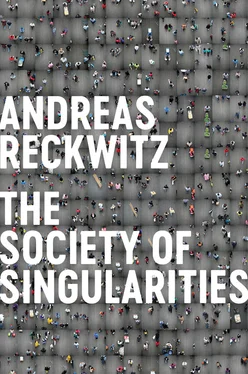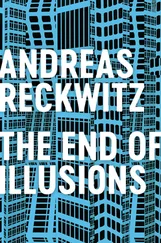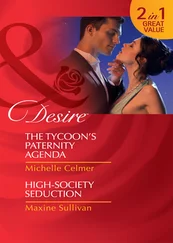To summarize: in the cultural sphere in the strong sense, singularities are endowed with value and have affective qualities. We are moved or touched by them, fascinated or disgusted in a compelling way; we experience a sense of horror or comfort in their presence. Positive singularities affect people in an intensely positive way, negative singularities in an intensely negative way. These affective processes are not, however, irrational. They have a sociologically comprehensible logic of their own. Valorizing objects, subjects, events, and collectives as unique and being affected by them are inextricably linked to one another. They are both formational components of the culture’s sphere of circulation and its logic of singularities. That which seems to be valuable and unique operates in an affective manner because it is valuable and unique. And that which produces considerable emotions seems to be valuable and unique because it operates in such a strongly affective manner.
Culturalization versus Rationalization
In its valorizing and affective structure, culture in the strong sense always has the form of something non-rational or extra-rational, beyond any productive or intersubjective utility. In the history of cultural theory, such an understanding of culture was suggested in the context of the Collège de Sociologie by authors such as Georges Bataille and Roger Caillois. 13From this perspective, culture does not appear as the totality of human ways of life or as the world of meanings but rather as a counterpart to rationalism, and so it has been from archaic societies to the society of the present day. Rationalism is always oriented toward production and accumulation, toward conserving and reinvesting social energies, toward efficiency and regulation. Culture, on the contrary, is to some extent unproductive. Its practices are unconditional , which means that they are without a purpose or function. They have value; they are strongly affective practices of overspending . Whereas rationalism is based on labor and dominating nature, culture is grounded in sovereignty – in going beyond instrumental praxis by distancing oneself from necessities. In contrast to the tranquil and cold complex of formal rationalization, the cultural sphere is hot .
The idea that a contrary logic of rationality and culture forms the basic structure of all societies is instructive. This tension cannot really be understood, however, unless one is aware of the existence of the oppositional social logics of the singular and the general. In this light, rationalization and culturalization can be systematically and ideal-typically compared as two structuring principles of society that format the social in two different directions. We have already seen that formal rationalization standardizes, generalizes, and formalizes social entities according to the specifications of the social logic of the general. The culturalization of the social, however, is precisely that social process in which objects, subjects, spaces, temporalities, and collectives are singularized in the sense described above. The cultural ization of the social means this: more and more of such singularized (that is, valorized and affectively operating) objects, subjects, places, events, and collectives are being fabricated, and the applied practices of observing, evaluating, producing, and appropriating them are becoming more and more extensive. This quantitative shift has a qualitative and structurally formational effect on society.
Culturalization can thus influence the macro-level of societies, but its effectiveness depends on the micro-level of the individual social entity. Food or a meal, for instance, can become the object of culturalization when it is valorized beyond its nutritional utility as a bearer of value (“healthy,” “original,” “holy,” etc.) and when it functions affectively (“uplifting,” “tasteful,” “extraordinary”). Culturalization is simultaneously singularization, and vice versa. The meal is elevated out of the general catalogue of nutritional means; it develops its own inherent complexity and inner density (through its particular preparation and spatial atmosphere, by being part of a religious practice, etc.). Food that had previously served the rationalistic aim of eating can thus be transformed by the logic of singularities and enter the cultural sphere, with its valorizing and affecting dynamics.
In that affective entities of this sort are fabricated with value, what takes place in the process of culturalization could be called “doing culture.” 14The process of rationalization is always concerned with reducing complexity, with confining social entities to just a few parameters and therefore making them predictable and cooperative. Here, complexity is regarded as disruptive. Culturalization, in contrast, allows select objects, subjects, places, events, and collectives to develop inherent complexity and inner density, whereby they are singularized. Here, inherent complexity and inner density are the very appeal; they are the whole point.
Why in society are there not only processes of formal rationalization but processes of culturalization as well? Above, I explained that the rationalization of social praxis can be interpreted as a response to the problems of scarcity and disorder in society. In this respect, rationalization provides efficiency and stability. The culturalization of the social, in contrast, can be seen as a response to the social problem of meaning and motivation . Here the issue is why life should be lived in a certain way. Cultural practices – from telling mythical stories and engaging in collective rituals to traveling abroad and playing computer games – are answers to the question of to what end (collective or individual) life should be lived when privation and disorder have been averted. Whereas rationalization is a response to the question of how , culturalization answers the question of why . Essentially, cultural praxis and the cultural sphere make it possible for people to distance themselves from the necessities of the life-world and formal rationalization, and they do so not by reducing complexity along formal parameters but rather by allowing it to unfold. Above all, they promise to provide value and affect.
Cultural and social theorists have been fully aware of the existence of the problem of meaning and motivation, and they have written extensively about its role in archaic and traditional societies, with their magic, myths, religions, images, rites, games, and celebrations. To some extent, however, the prevailing interpretation of modernity as a process of formal rationalization implies that culturalization defines traditional societies just as rationalization defines modernity. This makes it seem as though the “irrational” culturalization of older societies was supplanted by the culturally neutral rationalization of modernity. 15Put simply, older societies were concerned with meaning, while modernity has been concerned exclusively with efficiency. This interpretation, however, leaves us with just a one-dimensional image of things. Apart from the fact that premodern societies had their own formats of rationalization and were far more rational than modern thinkers would like to believe, modern societies have also developed their own forms of culturalization, their own social logic of singularities. Shrewd proponents of the rationalization narrative – Max Weber among them – have at least identified a problem in modernity’s presumed replacement of culture by rationality, a problem that has been subjected to all sorts of cultural critique under the rubrics of disenchantment and the loss of meaning. 16In reality, culture – with its valorizing and affecting nature and its preference for the unique – has not disappeared from modernity at all, and certainly not from late modernity, where it has experienced a historically unprecedented surge and structural transformation. The problem of meaning and motivation, to which culturalization is a response, is in general just as present as the problem of efficiency and order – and as soon as problems of efficiency and order became less pressing, it even took center stage. The truly interesting question, then, is not whether processes of culturalization simply represent a sort of problem of excess or luxury, but, rather, which form the cultural sphere has adopted and what exact relationship has developed between culturalization and rationalization in individual forms of society.
Читать дальше












